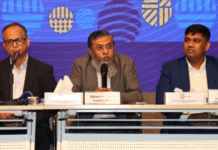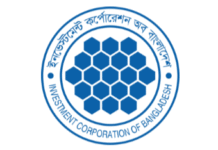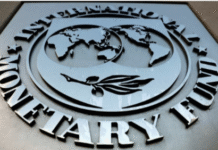
Small garment factories with limited capital, unable to afford a bonded warehouse licence, are struggling to sustain their businesses due to difficulties in securing back-to-back letters of credit (LCs) and procuring raw materials and accessories.
Sector insiders say due to the lack of a bonded warehouse licence, some banks are not opening back-to-back LCs against master LCs under the government’s existing regulations.
Additionally, customs policies prevent the purchase of yarn, fabric, or accessories on credit under back-to-back LCs from local bonded licence holders. Even when buying these items in cash, businesses face higher costs, increasing pressure on working capital and reducing profitability, they say.
According to the Bangladesh Garment Manufacturers and Exporters Association (BGMEA), there are around 1,150 such factories employing around 7 lakh workers, with a combined annual export value of about $6.5 billion.
Entrepreneurs say there are several conditions that must be met to obtain a bonded licence which are difficult for small-scale entrepreneurs to comply with
On 30 November, in a letter sent to the National Board of Revenue (NBR), the BGMEA stated, “Over a hundred factories have already shut down due to the inability to secure back-to-back LCs or procure raw materials and accessories from bonded companies. The remaining factories are also losing capacity and are on the verge of closure.”
According to NBR officials, the government has adopted a strict stance because transactions between bonded and non-bonded entities are difficult to track making it harder to detect irregularities.
However, BGMEA officials argue that it is unreasonable to punish thousands of entrepreneurs due to the actions of a few guilty parties.
“Among the over 1,100 non-bonded factories, perhaps 20 are guilty. They should be identified and punished, but the rest, especially small exporters, must be supported,” Anwar Hossain, administrator of the BGMEA, told TBS.
Sources say the BGMEA held a meeting last week with the NBR chairman to seek a solution.
A senior NBR official present at the meeting told TBS, on condition of anonymity, that the NBR is positive about resolving the issue.
Moazzem Hossain, an NBR member, said, “We are exploring ways to facilitate trade while stopping misuse. We are hopeful for a positive resolution.”
How bonded warehouse works
The government has been providing back-to-back LC and bonded warehouse facilities to support the country’s garment exporters. Through back-to-back LCs, manufacturers can purchase raw materials and accessories on credit, which are paid for once the export earnings come into the country.
Under the bonded warehouse facility, no duties or taxes are levied on raw materials for export – the only conditions are the raw materials must be stored in a designated warehouse and the entire product must be exported.
Exporters without a bonded licence do not have access to these facilities.
There are nearly 3,500 garment factories in the country, employing about 40 lakh workers. The garment sector contributes to nearly 85% of the country’s total exports.
Trouble of small factories
Apparel Bangla Sourcing Limited, a small non-bonded factory in Pubail, Gazipur, began production in 2009. While it operated normally until 2019, some banks have since refused to provide it with back-to-back LCs.
It also became increasingly difficult to source raw materials from local bonded companies and the company consequently started losing orders.
In 2019, the factory employed 117 workers, but it now struggles with just 50 workers, said company officials.
“Even when we secure an LC for $50,000, we can’t get a back-to-back LC for $25,000. And even if an LC is opened, bonded companies aren’t supplying raw materials or accessories to us,” Shariful Alam Chowdhury, managing director of the garment factory, told TBS.
He said this means the opportunity to purchase raw materials on credit is no longer available and entrepreneurs like him are forced to buy in cash, incurring additional costs.
“Now, I am trying to survive by securing small orders worth $14,000 to $15,000. As a result, the workload is decreasing daily, and the number of workers is also shrinking,” he added.
How, then, are these entrepreneurs procuring raw materials for small orders? In response, Shariful said, “With cash. Since I’ve been in business for a long time, some familiar sources sell me yarn. But I have to pay a higher price for it.
“If the market price of yarn is $2.20 per kg, I am forced to buy it for $2.40. On top of that, there are extra costs for accessories and banking.”
He said, “Due to not having a bonded licence, we incur extra costs everywhere. We have to pay additional fees to customs for approval of export-related documents – although I am a legitimate exporter with no irregularities.”
He further explained, “I can’t even exit the business because I have a bank loan. I have to pay monthly instalments of Tk950,000.”
RL Apparels Limited, located in North Badda of the capital, is facing the same trouble. This factory, with 100 workers, exports goods worth nearly $1 million annually.
Its managing director Md Rokonozzaman told TBS, “I can source raw materials from some local establishments by paying cash.”
Explaining why bonded companies cannot provide raw materials or accessories to non-bonded companies, he said, “They are not permitted to sell to us. Bonded factories can’t settle the accounts with customs authorities at the end of the year. That’s why they don’t want to sell to us.”
He added, “If this continues, small factories like ours will eventually shut down.”
He mentioned that this issue is most severe for non-bonded sweater factories.
Why exporters not interested in obtaining bonded licence
Entrepreneurs say there are several conditions that must be met to obtain a bonded licence which are difficult for small-scale entrepreneurs to comply with.
“Specific warehouse size, wide roads in the vicinity, a paid-up capital of Tk1 crore, and other conditions are required. Even if these conditions are met, one has to wait for months, or even years, after applying for a licence,” said Rokonozzaman.
Beyond these requirements, entrepreneurs face a major concern – bribery. Business owners have alleged that they have to bribe customs officials at various stages, such as when obtaining the licence, during year-end audits, and while obtaining utility permits.
Shariful Alam Chowdhury said, “About a year ago, I decided to apply for the [bonded warehouse] licence. Later, I was told that the process could be expedited through a third party. Then I learned that getting the licence would require a bribe of Tk30 crore, which would be paid at various stages and to different officials.
“If the bribe is paid, whether the conditions of the licence are met becomes less of a concern.”
Reasons for strict regulations
According to NBR officials, it is easier to monitor companies under the bonded licence system as they are under NBR’s supervision. Even so, there are allegations of irregularities within these companies.
“When bonded companies sell to non-bonded entities, tracking those transactions becomes difficult,” a senior customs official at the NBR, speaking on condition of anonymity, told TBS.
“Due to irregularities, the government faces revenue loss. Besides, local manufacturing companies producing the same products face uneven competition,” he added.
Mohammad Hatem, president of the Bangladesh Knitwear Manufacturers and Exporters Association (BKMEA), told TBS, “Cutting off the head to cure a headache is not the solution. Action should be taken against those who commit irregularities, but this should not obstruct the export opportunities of legitimate exporters.”
tbs









